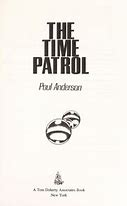Everard asks:
"'Who knows what a happening early on - a victory or a defeat, a rescue or a death, a certain individual getting born or not getting born - who knows what effect that could have, as its results propagate through the generations?'" (p. 355)
Farness replies that he is concerned with stories and poems, not with events. Despite this, he intervenes in a war and causes a pregnancy! His defence of his intervention in the war is that:
he did not kill anyone;
if anything, by throwing illusions and making the Vandals retreat, he saved lives;
history did not record that raid or its outcome.
He adds that the line of descent that he started was a minor statistical fluctuation in the gene pool of the kind that soon averages out.
But this does not respond to Everard's original question. Saving lives might be as dangerous as ending them. The fact that the raid was not recorded means that the effects of intervening in it are unknown and therefore potentially dangerous. The line of descent that he started comprises the characters in the story that he is studying! When he learns this, he seems to take it for granted.

1 comment:
Carl is relying on the "resilience" of history that's specified as the reason time travel is allowed at all.
The example given early in the Patrol stories is that if you went back and prevented Booth from killing Lincoln in 1865, the most probable result unless you took very elaborate precautions, would be that someone -else- killed Lincoln... and Booth got blamed for it.
Everard is pointing out that this doesn't -always- happen.
Post a Comment